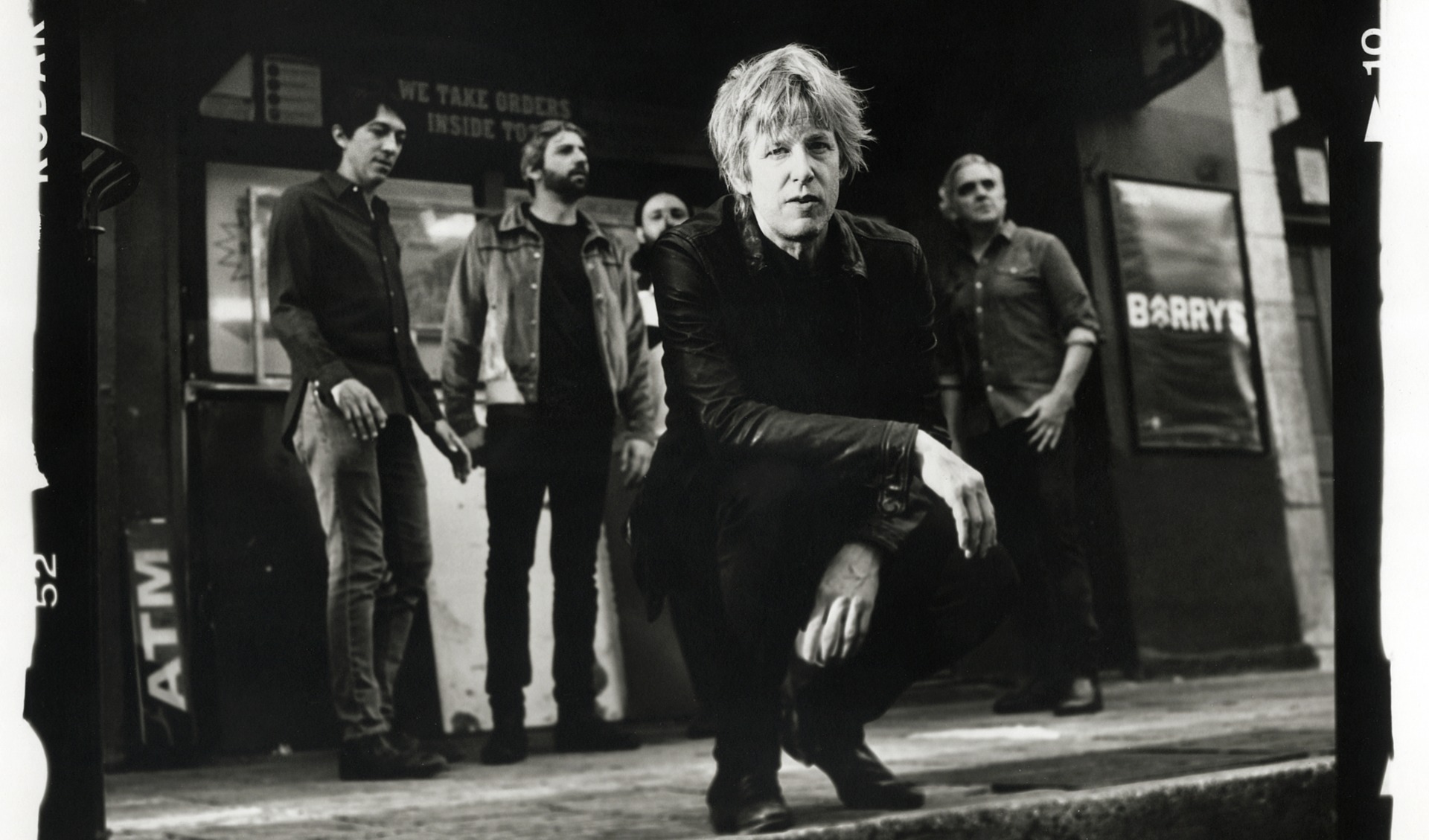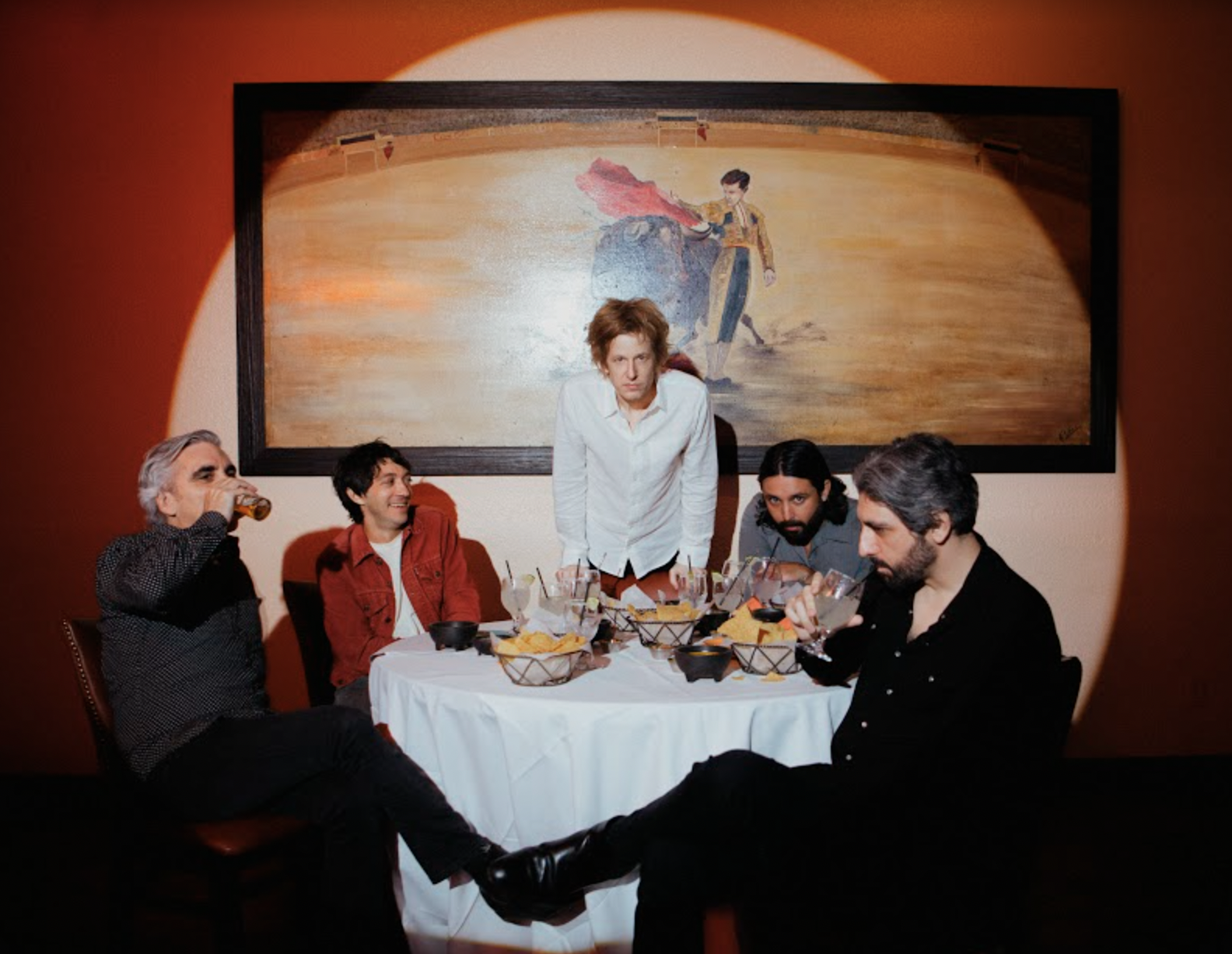

This event has ended. Check out other events.
Event Details
Date
Wednesday, July 20, 2022
Time
Doors: 7:00 PM - Show: 8:00 PM
Age Restriction
All Ages
Venue
Coors Event Centre
Address
241 2 Ave S, Saskatoon, Saskatoon, SK
Artist
About the Event
Important Information
Spoon

One of indie rock's most critically acclaimed acts, Spoon have earned a reputation for being consistently inventive and inventively consistent. They arrived as brash post-punkers in the post-grunge lull of the mid-'90s, but in the decade that followed, Spoon truly came into their own. On 2001's Girls Can Tell and 2002's Kill the Moonlight, they stripped rock down to its most essential elements, then used the empty space that remained to play with shifting rhythms, taut guitars and literate lyrics in ways that sounded innovative and timeless.
This heady blend of precision punk and serpentine classic rock (the band has drawn comparisons to everyone from the Pixies and Sonic Youth to Elvis Costello and Tom Petty) eventually earned Spoon commercial success as well as glowing reviews: Their 2007 album, Ga Ga Ga Ga Ga, was a top 10 hit in the U.S.. Over the years, the band continued to evolve while remaining true to their minimalist roots. They opened up their sound on 2017's dance-tinged Hot Thoughts, then went back to basics with the raw rock of 2022's Lucifer on the Sofa, both of which exemplified how Spoon found new ways of doing what they've always done. Spoon was formed in Austin, TX in 1993 by singer/guitarist Britt Daniel and drummer Jim Eno, who met during their time in the band Alien Beats.
Taking their name from a Can song, Spoon's debut EP Nefarious appeared on the small Texas imprint Fluffer Records in May 1994. The band signed to Matador the following year, and issued their first full-length Telephono in April 1996. Produced by the Reivers' John Croslin and recorded in his garage studio for $3,000, the album reached number 35 on Billboard's Independent Albums chart, while its noisy, hooky take on post-punk drew favorable comparisons to Pixies and Wire. Daniel and Eno added bassist Josh Zarbo (formerly of the local band Maxine's Radiator) to the fold in 1997, and honed in on the tight, minimalist pop that became Spoon's forte with that year's Soft Effects EP.
In 1998, the band began a brief and tumultuous stint on Elektra Records, who released Spoon's second album A Series of Sneaks that May. Once again, the album earned favorable reviews, but its sales were disappointing to Elektra, which was in the midst of an internal company shake-up at the time. Four months after the album's release, the label dropped Spoon (in 2002, Merge reissued A Series of Sneaks with two bonus tracks that chronicled the group's disappointment with major-label politics). Daniel moved to New York City, working temp jobs and writing songs, while Eno remained in Austin and designed semiconductor chips. Spoon then signed with the prominent indie label Merge Records, where the band went on to carve out its niche in the increasingly widening modern rock mainstream.
After the release of 2000's Love Ways EP, their sound became increasingly adventurous on 2001's Girls Can Tell. Recorded in Eno's home studio with producer Mike McCarthy, the album's songs were informed by the Kinks, the Supremes, and Elvis Costello. Girls Can Tell built on Spoon's critical acclaim, and sold more than their two previous albums combined. The band capitalized on this success, releasing Kill the Moonlight in August 2002. Hitting number 46 on the Billboard's Independent Albums chart, the album added piano, tambourine and other percussion to Spoon's increasingly stark yet catchy approach, as on the single "The Way We Get By." Daniel began writing songs for the band's next album in 2003. The results were May 2005's cinematic Gimme Fiction, which added multi-instrumentalist Eric Harvey to the fold and debuted at number 44 on the Billboard 200 Albums chart.
After Daniel collaborated with composer Brian Reitzell on the music for the 2006 film Stranger Than Fiction, Spoon's success continued to grow with July 2007's Ga Ga Ga Ga Ga. The first album to feature bassist Rob Hope (Zarbo departed earlier in 2007), it made it to number ten on the Billboard 200 Albums chart, sold over 300,000 copies in the U.S. and topped many publications' year-end lists. Spoon, who by this time had become a fixture on soundtracks, television programs, and late-night talk shows, released their seventh full-length album Transference in January 2010 to a number four debut on the Billboard 200. After touring in support of the album, the band took a few years off. Daniel formed Divine Fits with Handsome Furs' Dan Boeckner, and the band released its debut album, A Thing Called Divine Fits, in 2012. Meanwhile, Eno concentrated on production work, collaborating with artists including the Strange Boys, Alejandro Escovedo, and the Heartless Bastards. Spoon resurfaced in August 2014 with They Want My Soul.
The band's eighth album featured new member multi-instrumentalist Alex Fischel and also marked their first time working with an outside producer in the shape of Dave Fridmann. Hailed by the band as its "loudest and gnarliest" work to date, it was issued by August 2014 through Loma Vista Recordings in the U.S. and Anti in Europe. Like its predecessor, it reached number four on the Billboard 200. The following year, Spoon commemorated the 10th anniversary of Gimme Fiction's release with a deluxe reissue. Late in 2016, the song "I Ain't the One" was featured on the Showtime dramedy Shameless, offering the first taste of Spoon's ninth album. Hot Thoughts, which reunited the band with Fridmann and ranged from dance-rock to stripped-down ballads, was released by Matador in March 2017 and peaked at number 17 on the Billboard 200. Two years later, Spoon issued the best-of collection Everything Hits at Once: The Best of Spoon, a selection of the band's definitive tracks and the new song "No Bullets Spent." Arriving in February 2022, Spoon's gritty tenth full-length Lucifer on the Sofa was co-produced by Mark Rankin and Justin Raisen. Featuring guitarist/keyboardist Gerardo Larios and bassist/keyboardist Ben Trokan, the album's influences included the band's live shows, Daniel's return to Austin, and the music of ZZ Top. ~ James Christopher Monger & Heather Phares, Rovi
Popular Music
Get your tickets now
Secure Transaction
Additional Events and Offers
Get your tickets now
Secure Transaction
Additional Events and Offers